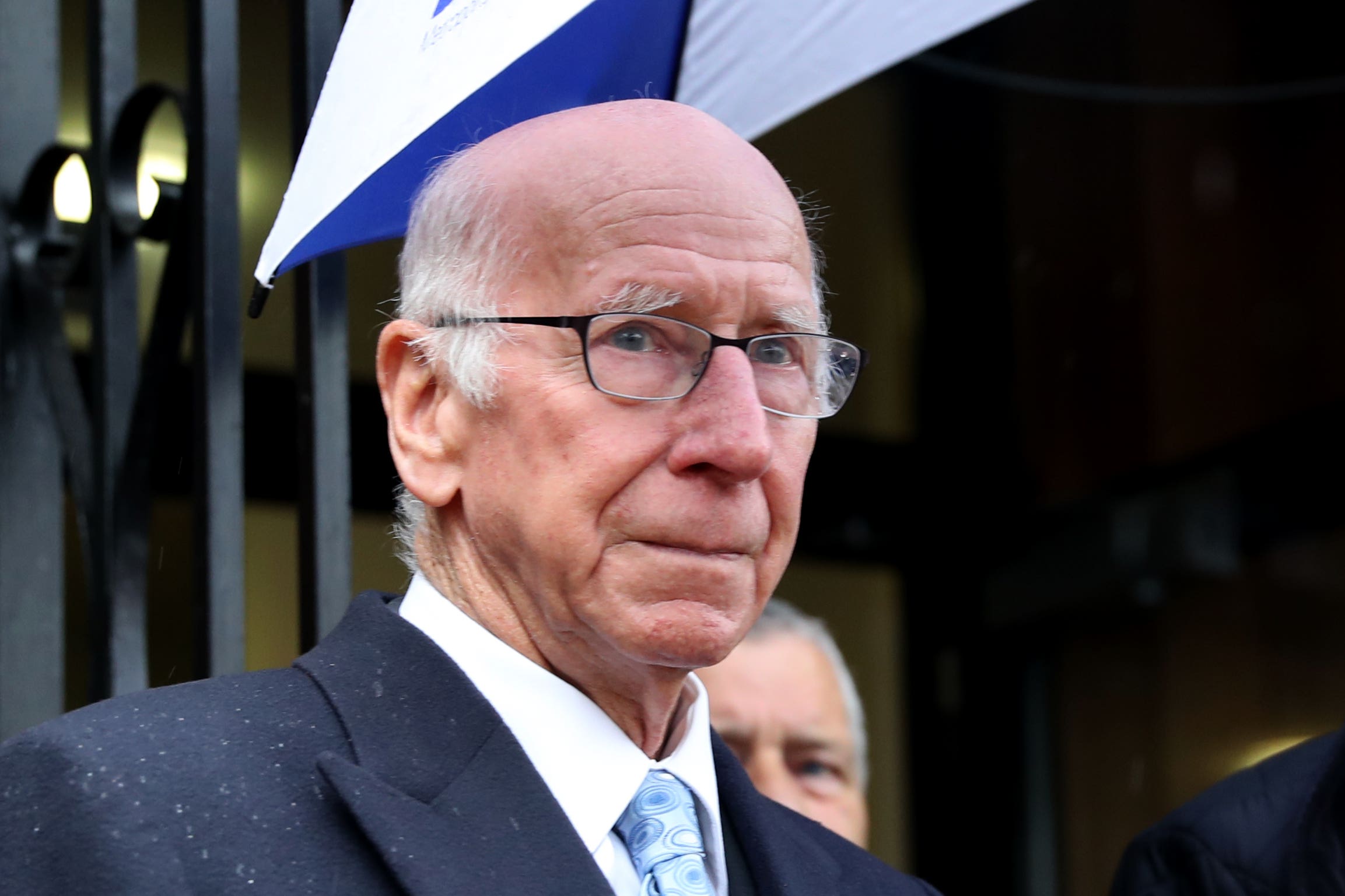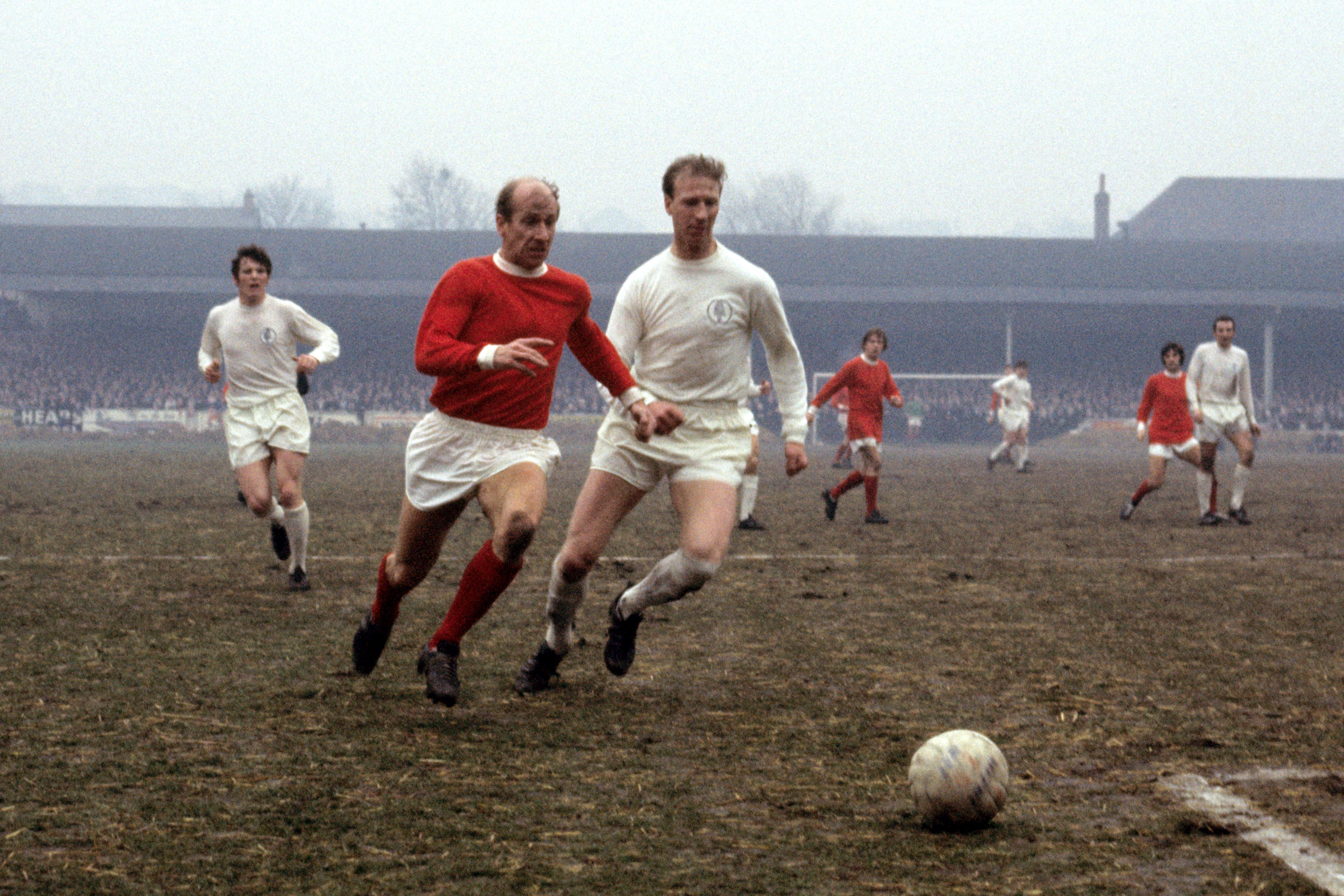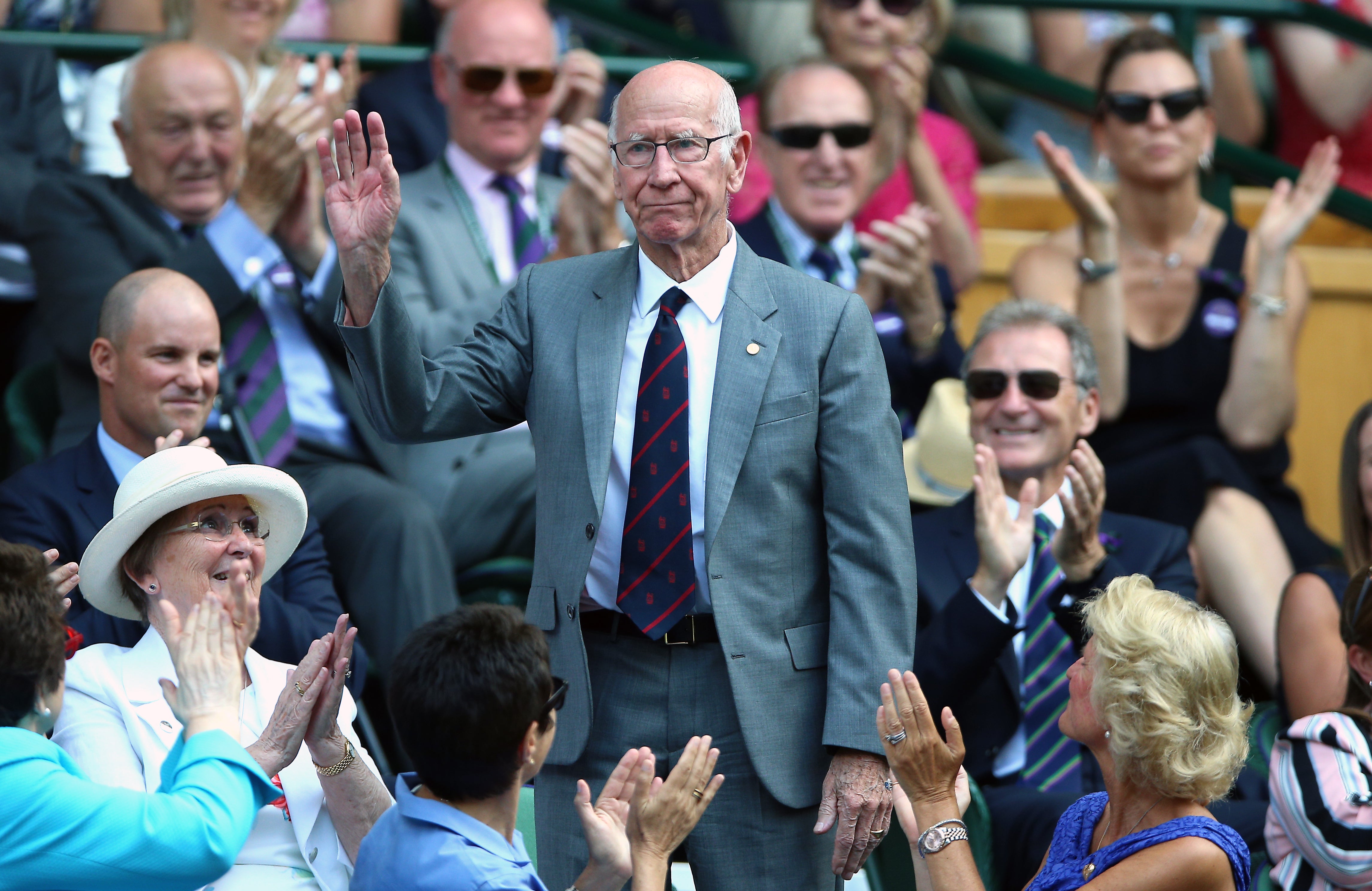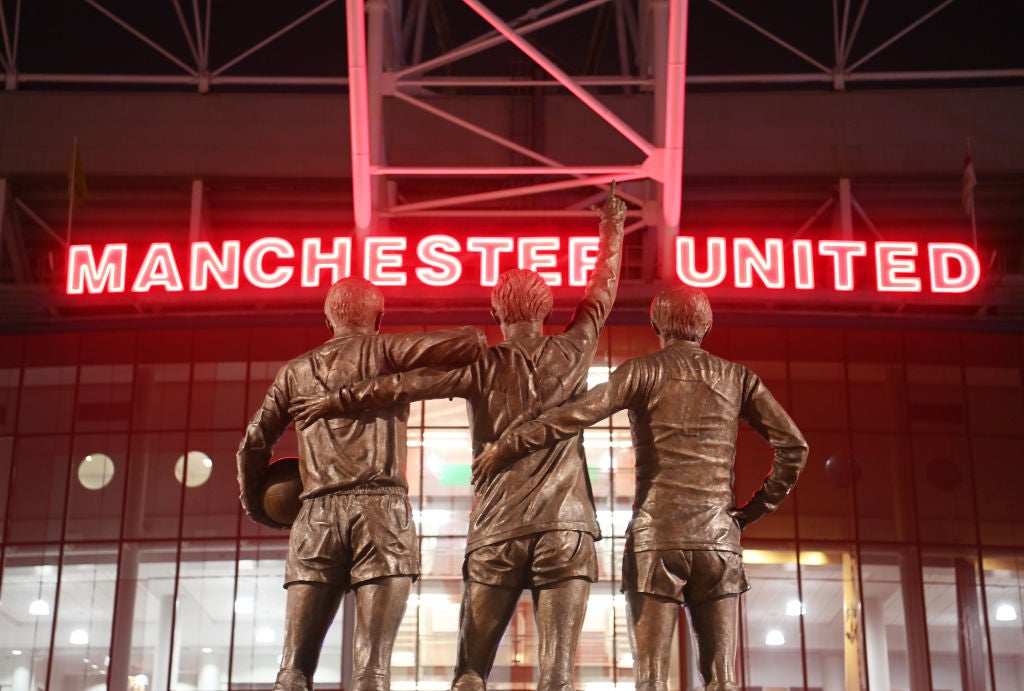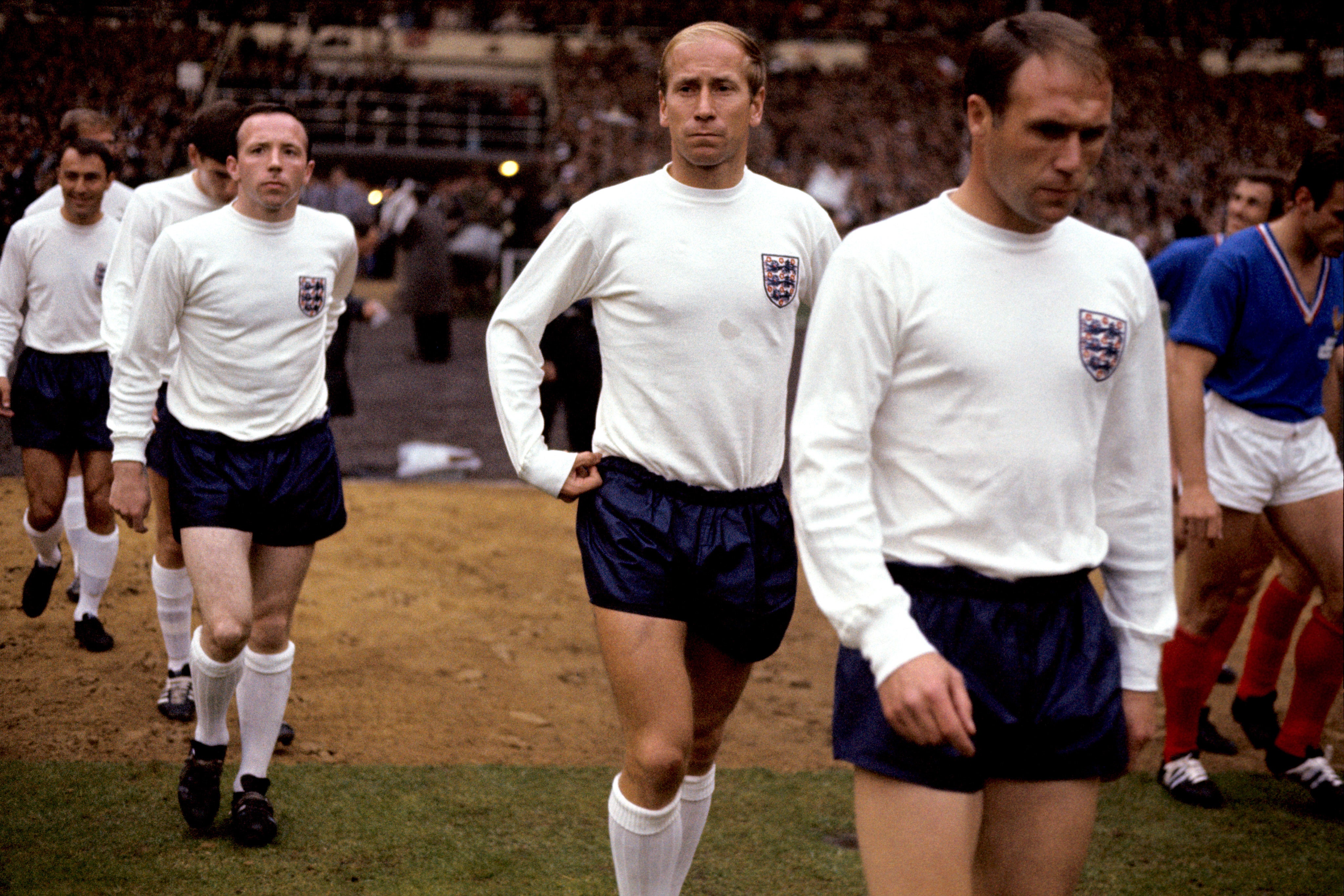Sir Bobby Charlton turned tragedy into triumph with unique style and perseverance
It was inevitable that, when United became England’s first European champions, Charlton’s thoughts turned to “the snowy airfield and Matt Busby and his team, our friends, down and destroyed”.
His survival surprised even his rescuer. Some players, worried by two failed attempts to take off, looking for somewhere safer, changed seats on the plane. Side by side, Charlton and Dennis Viollet did not. They were flung 50 yards from the plane. Harry Gregg, the goalkeeper and hero, found them lying in a pool of water, initially assumed both were dead and dragged their bodies into their seats; like rag dolls, he later said. Charlton was unconscious for about 10 minutes. After that, he stumbled past Colman, not even recognising his late friend. Gregg got a shock when he turned around and saw Charlton and Viollet standing, alive.
Sir Bobby Charlton became a legend of the game with England and Manchester United
He played again, 25 days after Munich, went to the first of his four World Cups that summer, albeit without playing, and scored 29 goals the next season. He carried on, brilliantly, securing not just one place in history but a multitude. Charlton spent decades as the record scorer for both United and England, before losing both records to Wayne Rooney, and with the most appearances for his club, until Ryan Giggs passed him. It would have been an astonishing career without the context. The style with which he played, the cannonball of a shot that made him a specialist at the spectacular, helped cement United’s reputation for attacking football. Charlton is united at Old Trafford with Denis Law and Best, the holy trinity of European Footballers of the Year immortalised in a statue, but these entertainers were different. There was a generational divide between Best, that icon of the Swinging Sixties, and Charlton, who came of age in the more austere Fifties.
The Trinity Statue outside Old Trafford of Sir Bobby Charlton, George Best and Denis Law
Like Busby, the manager who was read the last rites, the Englishman was old before his time. He had a naturally serious look, his face only lighting up in joy when he scored, and his past explained why. Even winning the World Cup left him with unfinished business. United, their golden generation broken, took years to return to the European Cup. When they did, the 1966 semi-final defeat to Partizan Belgrade left Busby distraught. “We will never win the European Cup now,” he said.
But two years later, they were back in a semi-final. Only three Munich survivors remained: Charlton, Busby and Bill Foulkes, who had captained them in their first game afterwards, returning to the pitch 13 days later. A decade on, the 36-year-old centre-back, who had spent the semi-final second leg against Real urging Nobby Stiles to stay back, took it upon himself to gallop into the box at the Bernabeu. “Unquestionably the last man any of us wanted to see on the end of a George Best cross,” as Charlton recalled, swept in his last goal as a footballer to book United’s place in the final.
Sir Bobby (second right) scored 49 goals for England
There was a different kind of improbability then. Charlton opened the scoring against Benfica with that rarity, a header. A great left-footer scored his second goal with his right, a near-post finish. For Charlton and Busby, it was the end of something, an achievement dedicated to others, required because of their memories of those who were not around to see it. They had the potential for greatness and it was wrenched from them amid the flames of a plane crash. And, from the ashes of tragedy, Bobby Charlton turned his talents into the two trophies that mattered most and meant something more to him.
Source: Read Full Article
